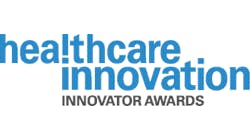Philadelphia-based Independence Blue Cross is selling a minority equity stake in its subsidiary Tandigm Health to Penn Medicine.
Tandigm, founded in 2014, serves the five-county Philadelphia region, supporting a network of 400 primary care doctors, many who are affiliated with regional community hospitals such as Chester County Hospital, Doylestown Hospital, Grand View Health, and Redeemer Health. The company contracts with payers such as Independence, Humana, and the federal government’s Centers for Medicare and Medicaid Services.
The collaboration will bring more doctors and patients into a Tandigm value-based arrangement, and the existing Tandigm physician network will benefit from Penn Medicine services and access being made available. Penn Medicine will also have representation on the Tandigm board of directors.
Together, the organizations said, they will join forces in new ways to improve patient outcomes and drive more cost-efficient care, while also increasing provider satisfaction.
The agreement, which officially launches on January 1, 2023, also contains a long-term commitment from Penn Medicine to work with Tandigm for all primary care value-based programs across all payers.
“In an increasingly complex healthcare environment where patients have choices about where to get care, we have to provide equitable access to the right care at the right place – which is often close to home,” said Kevin Mahoney, CEO of the University of Pennsylvania Health System, in a statement. “Tandigm has built the tools and expertise to enable that. Working with Tandigm’s network of primary care physicians and with local community hospitals, we can ensure that patients get access to the range of services that best meet their needs in the most convenient location. As the healthcare industry changes, partnerships like this are helping us to create the future – and stability – that both our patients and the healthcare providers who serve our community deserve.”
Independence and Penn Medicine have collaborated extensively to accelerate the adoption of value-based care. In 2017, they launched a program that reduced dramatically the number of avoidable readmissions to Penn Medicine hospitals after treatment and discharge.
“We are excited to move to the next generation of value-based care, expanding member access to the benefits of population health management and ensuring that they can access quality care where and when they need it,” said Gregory Deavens, president and CEO of Independence Blue Cross, in a statement. “This means connecting every aspect of the healthcare system, from the primary care physician to the hospital and all the other critical care settings, including the home.”
This more integrated, regional approach to value-based care is a first for Philadelphia and goes beyond other models seen elsewhere across the country, the organizations said.


